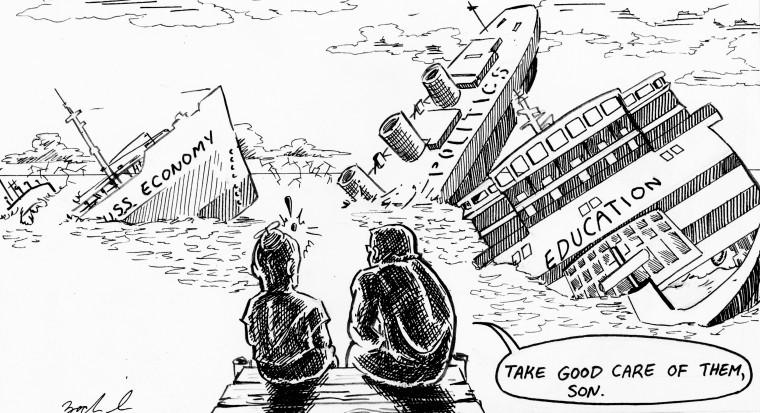Most young people are politically apathetic
March 2, 2011
To use the rallying cry of the demonstrators gathered at the MLK Commons in support of the Wisconsin labor struggle, “It’s pathetic to be apathetic.”
Most of us have been in an argument or discussion with someone and raised a point or fact that is fundamental to understanding the topic at hand, only to hear them respond, “I have never heard of that before. Even so, I still think I’m right.”
In such cases, you have witnessed the phenomenon of apathy first hand.
Not only is there self-admitted ignorance on the subject, but there is also a willful refusal to consider the newly presented information and an attempt to avoid discussing the issue any further.
Encounters with the politically apathetic are all too common, especially on college campuses.
Although college campuses are typically associated with political activism, that seems to be an increasingly antiquated notion. Ask a random person on the street about an issue, and the response may very well be, “I don’t care about politics.”
This is problematic because although keeping tabs on the latest events is exhausting, it is critical for understanding how you and others will be impacted by political decisions.
Civil rights, privacy rights, the future of the Internet, and health care are only a sampling of the issues, and the outcomes affect everyone in some way.
What is worse, however, is the startling displays of willful ignorance that are characteristic of a different sort of apathy–the intellectually apathetic.
In this case, the person is often an active participant in the political process, or at least more willing to debate, but lacks the intellectual curiosity to do any research on the issues they speak out about.
The intellectually apathetic have a world view that is derived not from observing and engaging with facts or understanding of relevant subjects, but instead relies on knee-jerk reactions to guide their position.
This behavior is dangerous because they take hard stances on issues, despite an admitted ignorance of the subject at hand. Everyone has a right to participate in the democratic process regardless of knowledge, but a well-informed participant better serves everyone.
In my view, education has played a role in fostering this pervasive sense of political and social ignorance. I can only speak to my own experiences, though I suspect mine was not all that different than others’.
It was not until I took A.P. courses and university classes and began reading on my own that I was presented with a complex, multi-faceted view of the world.
By the time any critical examination of history, current events, or social issues occur, many will have become so set in their world view that challenges are outright rejected with little thought or consideration.
But the failures of the education system are not a free pass. Only the individual can choose whether to engage new information or not. The facts are out there, regardless of the subject, but sometimes require determination to find.
I am not asking that everyone be a walking encyclopedia of social issues, but at least understand the facts behind them before arguing about them.



